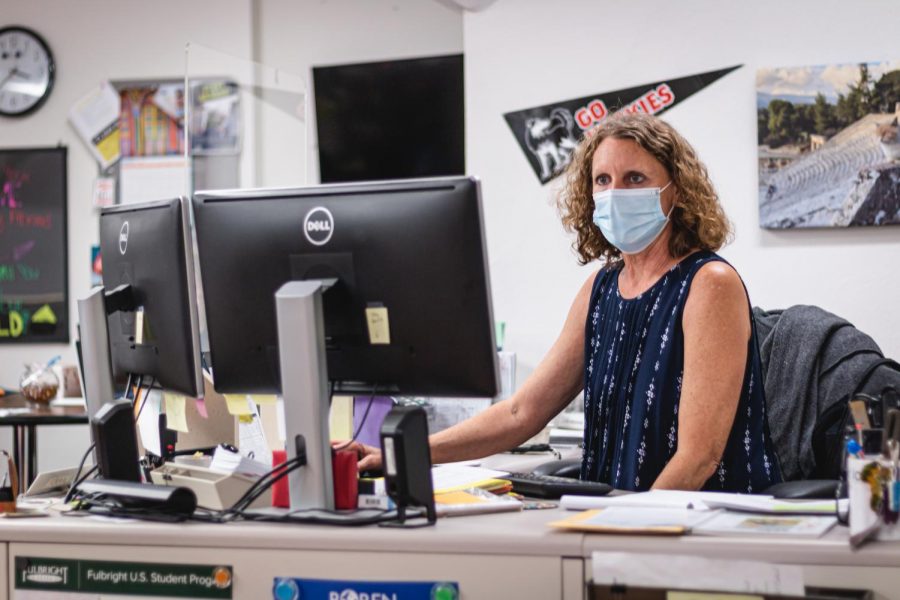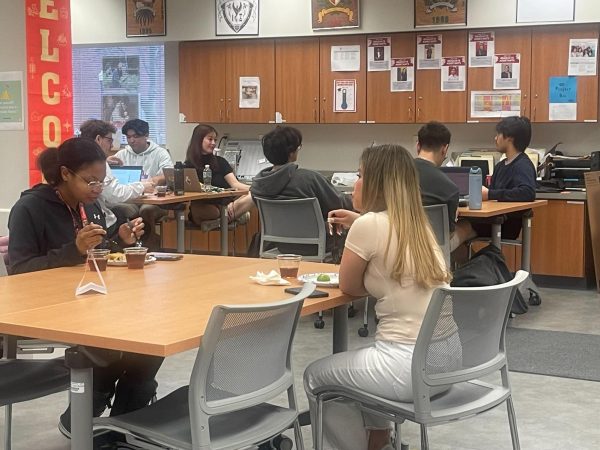Study abroad countries to be monitored for COVID-19 spikes
Study Abroad Adviser Jill Vodden is sending a Microsoft Team invitation link through email for the Study Abroad 101 event.
September 18, 2021
DeKALB — Students can now study abroad in person after a year of virtual study abroad programs due to the pandemic.
During last year’s spring semester, the Study Abroad Office had to suspend all travels for students through August and even had to work on getting the seven students they had been studying abroad back to the country, according to a Northern Star article. The department is now accepting new applications for winter break and the 2022 school year.
Clayton Schopfer, a senior majoring in political science and Spanish, is planning on studying abroad in Colombia and recommends planning as early as possible.
“It’s important to find the right program with the same interests and talk to your advisors about them,” he said. “Additionally, finding the right programs that have transferable credits to your degree is equally as important.”
Vaccinations are required to study abroad in other countries, and the department is also keeping track of each country’s COVID-19 metrics.
New studies have shown that the Delta variant can cause severe symptoms for unvaccinated individuals and is two times as more contagious compared to past variants, according to the Centers for Disease Control and Prevention.
“We are going to continue to keep our eye on the COVID situation in each of the countries where students plan to go,” study abroad adviser Jill Vodden said. “We’re hoping things for the upcoming summer, you know, will be okay, but things can always change.”
Different programs have different requirements such as GPA, amount of time spent studying on campus and being a sophomore standing at the university, Vodden said.
“Each program might have different eligibility requirements, especially for programs like in Japan or a very prestigious university,” Vodden said.
Each program also handles cancellation of the study abroad trips differently. Students are encouraged to pay for the trip cancellation insurance because there is a chance the trip can be called off at any point depending on the country’s COVID-19 exposure, Vodden said.
Schoper is hopeful that COVID won’t affect the program. “I’m not too worried about the mandates or guidelines, since I’m already used to having to wear masks on campus. Right now it’s looking like Colombia should be fully open, which adds onto the value of the trip by being able to experience the culture.”
There are over 60 countries students can choose from with active study abroad programs. As long as the department of state hasn’t put a level for travel warning or travel advisory for that country, students can plan to study there.
The length of the stay typically depends on how long the student prefers to be studying outside of the country.
“Depending on the program, you can study for short term, summer programs,” Vodden said. “Usually the minimum would be around three weeks. A full summer semester, a full academic year or over winter break.”
The department advises planning well ahead of time to get the finances down. Meeting with the Financial Aid Office to look for possible scholarships, grants and loans for their programs is important in understanding the resources that are available.
Students can sign up by filling the application on the department’s website and planning a meeting with a study abroad advisor.
After meeting with an advisor and picking a program, the office will help plan a financial breakdown of the predicting cost of studying abroad, Vodden said.
“Once you do choose a program, our office can create a cost estimate for you, and you can take that estimate over to the Financial Aid Office and see what your options are.”













